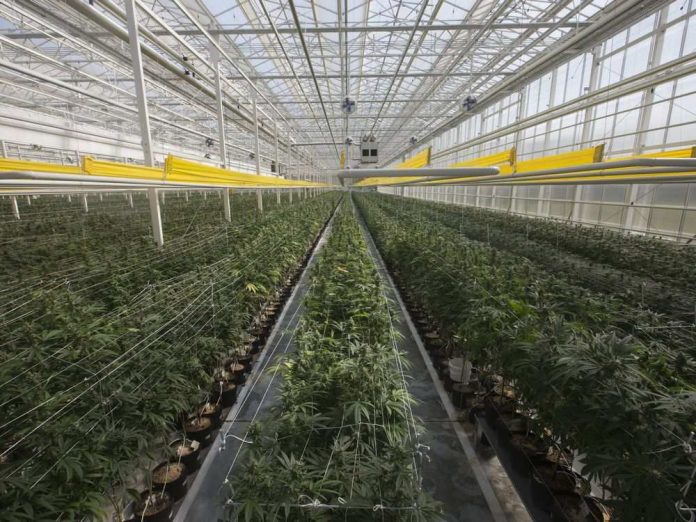On Thursday, relatively new legal marijuana player Green Growth Brands (OTCQB:GGBXF) offered to swap GGBXF shares for all outstanding shares of Aphria (NYSE:APHA), suggesting the offer was worth $11.00 (Canadian, or roughly $8 in U.S. dollars) per share of Aphria stock. All told, the suitor says the proposed deal values Aphria at $2.8 billion in Canadian currency, or $2.1 billion in U.S. dollars.
Investors thus far are facing mixed feelings on the matter.
The news sent Aphria shares up by more than 18% in after-hours trading, and APHA stock was still up nearly 14% on Friday morning … a big move by almost any standard. Yet, it’s also a disappointment to most APHA shareholders, given the stock’s early November peak of $17.60 (Canadian, or $13.45 in the U.S.). Just as disappointing is how, even with the big gain, Aphria stock remains miles away from Green Growth’s touted suggested value for Aphria shares, with NYSE-listed shares only trading near $6.30. Trading of its Toronto-listing remains halted, though it isn’t apt to be any more impressive once trading resumes either.
The muted response is largely the result of a small but important detail of the offer. Also holding the rally back, though, may be an unvoiced lack of confidence in either company’s prospects, separate, or together.
Details of the Deal
On the surface, the offer to owners of Aphria stock looks typical. Green Growth is prepared to hand over 1.5714 shares of GGBXF for every one share of APHA stock investors are willing to turn in. The all-stock offer, according to Green Growth Brands’ press release, represents a 45% premium to the Dec. 24 closing price of APHA stock, which in turn translates into a mathematical valuation of $2.1 billion (or $2.8 billion in Canadian dollars) for Aphria Inc.
A careful, second read of Green Growth’s all-stock pitch, however, reveals a critical detail that may have been overlooked with the first read. That is, the implied $2.1 billion (U.S.) valuation assumes a price $7 per share of Green Growth Brands stock. That’s not where its shares have been trading of late.
An official response from Aphria explains:
“Based on the 20-day volume weighted average price of GGB shares and the expressed exchange ratio of 1.5714 common shares of GGB for each Aphria share, the proposed bid would be approximately 23% below the Company’s average share price over the same period. Aphria shareholders should be aware that the value of GGB’s per-share offer is based on a hypothetical valuation of its own shares, with no relation to the current price.”
As is so often the case, the market already knew it before Aphria said it. Neither the Canadian-listed or U.S.-listed version of Aphria stock moved anywhere near Green Growth’s suggested per-share buyout value.
Dealmaking Opportunities Drying Up?
It would be anything but a game-changing pairing of two titans within the marijuana/hemp industry; much bigger deals have taken shape this year.
Case(s) in point: In August, Constellation Brands (NYSE:STZ) made a $4 billion investment in Canopy Growth (NYSE:CGC). In December, Altria Group (NYSE:MO) shelled out $1.8 billion for a 45% stake in Cronos Group (NASDAQ:CRON). Although not equity-based deals, the marijuana industry has also seen major supply deals inked by Tilray (NASDAQ:TLRY) and others. Even beverage behemoth Coca-Cola (NYSE:KO) has acknowledged its mulling of cannabis-infused beverages.
Aphria and Green Growth Brands, in comparison, aren’t nearly as well-known (or as well-funded) as any of those names … even within cannabis circles.
For Green Growth, the reason is, the company didn’t exist as a publicly traded marijuana play until a reverse takeover with Xanthic Biopharma was completed earlier this year (a reverse takeover as a way for a company to become publicly traded without the hassle of an IPO, establishing an easy way for it to raise funds).
As for Aphria, it wasn’t traded on an American exchange until November of this year. And, until last year, the Canadian company’s stock was only available through Toronto’s riskier “venture” exchange or through the United States’ OTC exchange.
The rapid rise of lesser-known names in the business — and now their sudden interest in dealmaking — is a subtle hint that the medical marijuana and hemp business is starting to gel, but gelling in a way that is quickly shutting new and smaller players out.
































